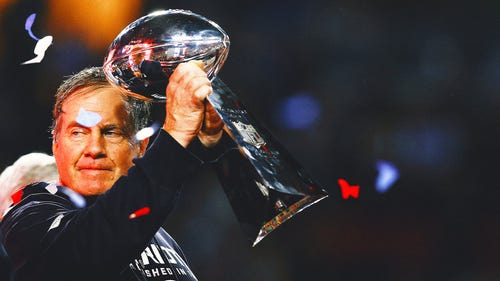
Ivy's move latest in tend toward less tackling in practice
Even before Ivy League coaches voted to eliminate full-contact practices from the regular season, teams all across college have been following the NFL's lead by cutting back on the amount and intensity of hitting done while preparing players for game day.
''Very, very rarely do we say, `Let's go full-speed tackling once we get into the year,'' Nebraska coach Mike Riley said Wednesday. ''So it wouldn't be a dramatic change for us, nor would it be for the majority of people. I think it would be just a definition of what we already do.''
Growing concerns about head injuries and the long-term effects of football's violence on players' health have led to changes in the way the game is coached. Teams and coaches are also motivated by the need to protect their assets, whether that is a professional player making millions or a college athlete on scholarship.
''You got to get your best horses to the starting gate as fresh as possible,'' Harvard coach Tim Murphy said.
Murphy said the Ivy League's new policy won't affect the way he runs his program.
''It will not eliminate anything because we've been doing this for 15 years,'' said Murphy, who has guided Harvard to nine Ivy League championships in his 21 seasons as coach. ''We've adopted the NFL model.''
The league's collective bargaining agreement limits full-contact practices during the season to 14.
Dartmouth coach Buddy Teevens took his lead from Rams coach Jeff Fisher and has been even more progressive when it comes to cutting down on contact in practice.
''We never take one of own players to the ground,'' Teevens said.
Teevens has eliminated all live tackling from practices, including spring and preseason. He said the result has been fewer concussions, fewer soft tissue injuries and - surprisingly - better tackling. Instead of practicing on each other, Teevens' players practice on pads and dummies, including a robotic tackling dummy.
Since cutting back on tackling in 2010, Dartmouth has not had a losing record and last year Big Green tied Harvard for the Ivy League championship.
Teevens has pushed for others to follow his lead, but putting a league-wide policy in place allows coaches more comfort to try something different.
''To just say all of us are going to shut it down completely, there was no advantage gained or disadvantage to doing this,'' he said.
The decision by the Ivy League coaches still needs to go through an approval process, which includes athletic directors signing off on it. The proposal is expected to pass.
The eight-team Ivy League plays in FCS, the second-tier of Division I football, but even in college football's top-tier, FBS, the trend has been less contact in practice.
In 2010, the Pac-12 passed a policy that limited teams to no more than two full-contact practices per week during the regular season. The Big 12 took that a step further last year. The conference's policy limits teams to two full-contact opportunities per week during the season, but that includes game day.
In both cases what those conferences did was largely make policy out of what many coaches - even those not in their conferences - were already practicing.
''Honestly, I think one day a week is plenty for that during the season,'' Baylor coach Art Briles said. ''They're getting it on Saturday all you want.''
Banning full contact does not mean zero-contact practices. Most teams will thud a day or two each week. Linemen come off the ball hard and battle in the interior lines. Players pop shoulder pads and occasionally someone hits the turf, but the idea is to stay off the ground.
During Baylor's 15 spring practice sessions, the Bears will only go full contact during their three scrimmages.
Briles said he would be apprehensive about taking tackling out of all practices.
''I think there's definitely pros and cons to each,'' he said. ''Safety would certainly be increased. The cons would be you're putting people out there in live situations that have never done it before, then expecting them to be able to take care of themselves. It's hard to preach what you can't teach.''
Teevens said he has been confronted by critics who believe he is taking safety too far and hurting the game. He doesn't buy it.
''Either we change the way we coach the game,'' he said, ''or we're not going to have a game to coach.''
---
AP Sports Writer Eric Olson in Lincoln, Nebraska, contributed to this report.
---
Follow Ralph D. Russo at www.Twitter.com/ralphDrussoAP









